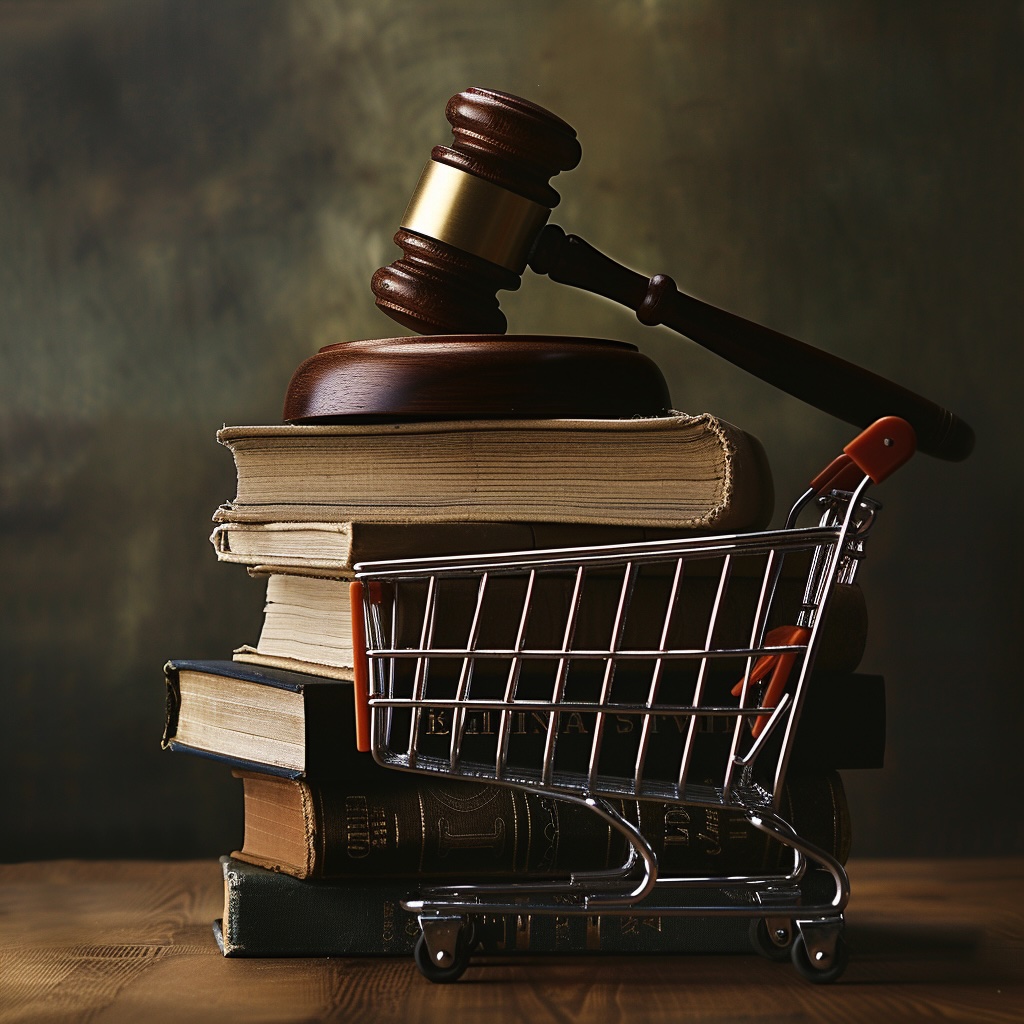Product liability is an essential area of law that affects consumers and manufacturers alike. Understanding product liability is essential, as product liability involves holding manufacturers, distributors, and sellers responsible for the safety of their products. In Ontario, product liability laws are designed to protect consumers from harm caused by defective products, while providing them with legal recourse in case of injury or property damage. Understanding product liability is crucial for both consumers and manufacturers, as it ensures consumer safety and promotes fair compensation in case of harm.
What is Product Liability?

Product liability is a branch of law that deals with the legal responsibility of manufacturers, distributors, and sellers for the safety of their products. It falls under the umbrella of tort law, which covers civil wrongs that cause harm to individuals or property. Product liability encompasses claims based on negligence, strict liability, and breach of warranty, and aims to provide consumers with legal recourse in case of harm or injury caused by defective products.
In product liability cases, the injured party, or plaintiff, seeks compensation from the manufacturer, distributor, or seller of the product. The burden of proof lies with the plaintiff, who must demonstrate that the product was defective and that the defect caused the injury or damage. This can be done by showing negligence on the part of the manufacturer, such as a failure to exercise reasonable care in the design, manufacturing, or marketing of the product. Alternatively, the plaintiff can claim strict liability, which holds the manufacturer strictly liable for any defects in the product regardless of negligence.
Product liability cases can be complex, as they often involve multiple parties, require expert testimony, and rely on the interpretation of various laws, regulations, and court decisions. It is advisable for plaintiffs to seek the assistance of legal professionals experienced in product liability cases to navigate the complexities of the legal process and ensure the best possible outcome.
Why is Product Liability Important?
Product liability is defined as the legal obligation of manufacturers, distributors, and sellers to produce safe products for consumer use. It is incredibly important for consumer safety, as it ensures that manufacturers are accountable for the safety of their products and provides consumers with legal recourse in case of harm or injury caused by defective products.
One of the main legal theories used in product liability cases is strict liability, which holds manufacturers liable for any defects in their products, regardless of negligence. This means that if a product is found to be defective and the defect caused harm, the manufacturer can be held responsible, even if they were not negligent in any way.
Product liability cases may also be based on breach of warranty, where the manufacturer fails to fulfill the promises or guarantees made about the safety or performance of the product. Manufacturers have a duty of care to design, manufacture, and market products that meet certain safety standards and perform as expected. Breach of warranty claims can arise when a product fails to meet these standards, causing harm or injury to the consumer.
What is the Relevance in Ontario’s Legal Framework?
In Ontario, product liability is governed by certain laws that provide a framework for addressing claims of harm caused by defective products. These laws are based on common law principles, which are legal precedents established through court decisions, rather than specific statutes.
Product liability claims in Ontario are subject to a statute of limitations, which sets a time limit within which the injured party must file their claim. The statute of limitations ensures that product liability claims are brought forward in a timely manner, allowing for a fair resolution of the case. It is important for individuals who believe they have a product liability claim to consult with legal professionals as soon as possible to ensure compliance with the statute of limitations.
Who is Responsible in Product Liability Cases?
Manufacturers and suppliers hold responsibility for product liability. While manufacturers are often the main focus in product liability cases, suppliers and retailers also have accountability. Manufacturers can be held liable under tort law and common law, and they must ensure the standard of care in the design and manufacturing process to avoid risking injury. Suppliers and retailers are responsible for the warranty of the product and the implied warranty of merchantability. They can also face liability under the theory of negligence or strict product liability.
What are Some Types of Product Defects?
Design defects, manufacturing defects and marketing defects are three types of product defects.
Design Defects
Design defects encompass inherent flaws within a product’s design that may endanger users. Establishing legal recourse for design defects necessitates demonstrating the associated risk of harm. Product liability claims rooted in design defects center on the flaw within the product’s design. Manufacturers bear potential liability for design defects under product liability law, emphasizing the importance of comprehending design defects in ensuring product safety.
Manufacturing Defects
Manufacturing defects arise in the production process, leading to unsafe products. Recourse under tort law mandates evidence of the deviation from the intended design. Claims concerning manufacturing defects pivot on the product’s flaw, holding manufacturers accountable under strict product liability. Understanding these defects is pivotal for product safety and legal redress.
Marketing Defects
Improper labeling or inadequate safety warnings can lead to marketing defects, causing harm to consumers. The absence of clear usage instructions and misleading advertising claims are also common issues. Such defects can give rise to breach of warranty claims, leading to legal action in product liability cases. It’s crucial for manufacturers and suppliers to ensure accurate and comprehensive product labeling and instructions to avoid potential liability. In such cases, tort law and liability insurance play significant roles in determining monetary damages.
How Can You Prove Negligence in Product Liability in Ontario?
In product liability cases, evidence plays a crucial role in proving negligence. This evidence may include design flaws, manufacturing defects, or marketing defects. The injured party must demonstrate that the product’s defect directly caused their injury. Role of Legal Professionals: Legal professionals are essential in gathering and presenting evidence to establish negligence. They navigate the complex legal framework and leverage their expertise to build a strong case.
In product liability cases, establishing evidence of the defect and its cause is crucial. Documentation of the product’s usage and the circumstances of the injury are vital for supporting the claim. Expert testimony plays a key role in providing essential evidence to prove product liability. Additionally, the plaintiff’s medical records and any previous complaints about the product serve as important evidence. Moreover, proving the manufacturer’s knowledge of the defect forms a significant part of the evidence required in product liability cases.
Legal professionals are essential in product liability claims, advising on claim strength, gathering evidence, and representing plaintiffs in negotiations and court. They guide on statutes of limitations, legal processes, and navigate the complexities of product liability law. Their expertise is crucial in building and arguing cases, ensuring a strong representation for the injured party. With their knowledge of tort law, civil law, and liability insurance, legal professionals play a vital role in ensuring fair compensation and upholding standards of care.
What are Unavoidably Unsafe Products?

Unavoidably unsafe products, as defined by the American Law Institute, are those that, no matter how well designed and manufactured, still present an inherent danger to users. In products liability cases, these items are not considered defective under the law. This area of law is often associated with personal injury cases as it involves risk of injury from the use of the product. The theory of liability for unavoidably unsafe products differs from the one applied to other types of defects, which makes it a distinct area in products liability law.
Definition and Examples
Products that inherently carry risks despite proper design and use are known as unavoidably unsafe products. Common examples include medical devices like pacemakers and pharmaceuticals such as vaccines. These products present unavoidable risks, even with proper design. The legal stand in Ontario recognizes the necessity of certain products being unavoidably unsafe, emphasizing the importance of understanding this concept within the area of law.
Legal Stand in Ontario
Ontario’s legal stand acknowledges the presence of unavoidably unsafe products, applying the strict liability theory to specific items. Emphasizing the manufacturer’s duty of care, even for unavoidably unsafe products, Ontario obliges manufacturers to provide sufficient warnings and instructions. Additionally, the legal stand ensures that the burden of proof lies with the manufacturer in product liability cases, highlighting the importance of adequate precautionary measures and the manufacturer’s responsibility in product liability cases.
Damages Recovered in Product Liability
In product liability cases, the injured party may seek monetary damages for the risk of injury caused by the use of the product. This could include compensation for medical expenses, lost income, and pain and suffering. The manufacturer of the product or component parts in the chain of manufacture may be held liable for breach of warranty of fitness or design defects leading to the injury. Understanding the theory of liability and supplier liability is crucial in product liability suits, as it determines the types of damages that can be recovered.
What are Some Types of Damages?
Compensatory damages for economic losses alongside non-economic damages like emotional distress are recovered in product liability cases. Punitive damages, intended to punish the defendant, also form part of the damages recovered. Additionally, damages for the loss of consortium and punitive damages in exceptional cases are encompassed. These aim to compensate the plaintiff for the harm suffered due to the defective product.
Calculation of Compensation
In product liability cases, compensation calculation encompasses medical expenses and future care needs. Lost income and earning capacity carry significant weight in the assessment. The plaintiff’s pain and suffering also play a crucial role. Legal professionals rely on intricate formulas and precedents for guidance, aiming to ensure fair financial recovery for the plaintiff’s injuries.
The Importance of Legal Expertise:
In navigating the complexities of product liability in Ontario, it becomes evident that legal expertise is not just beneficial but essential. For those who find themselves at the crossroads of product liability issues—whether as a consumer faced with injury from a defective product or a manufacturer aiming to uphold safety standards and mitigate legal risks—the guidance of experienced legal professionals is invaluable. Bergel Magence Personal Injury Lawyers stands at the forefront of providing such specialized legal assistance. With a deep understanding of Ontario’s product liability laws and a dedicated team that focuses on ensuring justice and fair compensation for their clients, Bergel Magence is committed to protecting consumer rights and supporting manufacturers in maintaining high safety standards. If you or someone you know has been affected by a defective product, or if your business seeks to navigate the intricacies of product liability law, consider reaching out to Bergel Magence Personal Injury Lawyers. Their expertise can offer the support and guidance needed to address product liability concerns effectively, ensuring that your rights are safeguarded and that justice is served.



